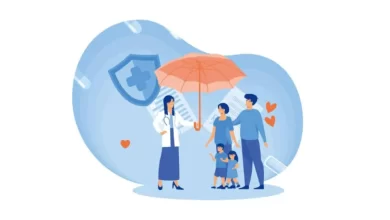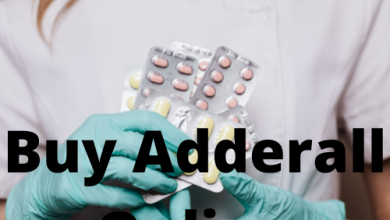
In this blog, we have covered:
- What is Attention-Deficit Hyperactivity Disorder (ADHD)?
- What are the signs and symptoms of ADHD?
- What are the causes of ADHD?
- How is ADHD diagnosed?
- What are the treatment options available for ADHD?
What is Attention-Deficit Hyperactivity Disorder (ADHD)?
Attention deficit hyperactivity disorder (ADHD) is a mental health disorder that affects your capability to focus, stay still, or control your behavior. ADHD can be mostly seen in children or teens. The fact about ADHD is that it can be continued to adulthood.
However, mostly it is seen or diagnosed in children wherein it is common in boys over girls. It can be detected during schooling especially when your child begins having difficulty focusing or paying attention in studies or other activities.
The important thing to read is that ADHD can’t be cured or prevented however it can be controlled. A good treatment plan and diagnosing ADHD early, can help your management or control this disorder in your childhood and can prevent them from future consequences. In the next section, let us read about the common signs and symptoms of ADHD.
What are the signs and symptoms of ADHD?
Signs and symptoms of ADHD are different at different ages, therefore, I have divided this section into different sub-section, and you can scroll down to read the signs and symptoms of ADHD according to the sections.
Signs and Symptoms of ADHD in Children
Symptoms of ADHD in children can be grouped into three major groups:
Inattentive
A child with inattentive symptoms of ADHD can be observed as:
- Easily distracted
- Never finishes tasks on time
- Does not follow instructions properly
- Does not listen to anyone
- Does not pay attention
- Keeps on making careless mistakes
- Does not pay attention to daily activities
- Less organized
- Does not like to do things at all
- Does not sit properly or attentively for a minute
- Often lose or forget things
- Tends to daydream often
Hyperactive-impulsive
A child with hyperactive-impulsive type of ADHD can be observed as:
- Always squirming, fidgeting, or bouncing even when sitting
- Does not like sitting for a minute even
- Does not like playing quietly
- Keeps on talking without taking a pause
- Always “on the go”
- Does not like waiting for his/her turn
- Keeps blurting out answers
- Interrupts others a lot
Combined
This basically involves signs and symptoms of both types.
Read Also:- Where to do Yoga Teacher Training India in 2022?
Signs and Symptoms of ADHD in Adults
Signs and symptoms of ADHD in adults keep on changing as they get old. Some of the common signs of ADHD in adults are:
- A habit of forgetting things
- Often being late
- Anxious
- Reduced self-esteem
- Having problems concentrating at work
- Trouble in controlling anger
- Impulsive
- Addiction or substance misuse
- Less organized
- Procrastination
- Always bored
- Trouble in focusing daily activities
- Mood swings
- Relationship issues
- Depression
What are the causes of ADHD?
Till now, research is going on searching for the exact causes of ADHD. Some of the researchers stated that ADHD can be caused by:
1. Genes
Genes that run in families can cause ADHD.
2. Chemicals
Chemicals present in the brain can cause an imbalance which can cause ADHD in people.
3. Brain changes
Sudden brain changes in children can impact their focus and attention which makes them less active. This can also lead to ADHD in children.
4. Substance abuse
Substance abuse, infections, poor nutrition, and alcohol usage during pregnancy can impact the development of the baby’s brain and it can also lead to ADHD after.
5. Toxins
Toxins intake can also impact the brain development of babies. And it can also lead to ADHD after.
6. Brain disorder or injury
Any type of brain disorder or injury in the frontal lobe can cause impulsive emotions and reactions which can also cause ADHD after.
How ADHD is identified?
With the help of signs and symptoms and knowledge, you can observe ADHD in children. But before getting on to any conclusion, please read that only certified mental health professionals can spot it. Therefore, you may require proper diagnosis by a registered and experienced mental health professional to diagnose ADHD in children or adults.
If you feel like you or your loved one is experiencing signs and symptoms of ADHD, you can directly contact a mental health professional to get the proper diagnosis and treatment.
What are the treatment options available for ADHD?
Below are some of the common treatment options for controlling or managing the symptoms of ADHD:
Medication
Such medicines act on the brain chemicals and work on the symptoms.
Common medications prescribed for ADHD are:
- Amphetamine
- Dextroamphetamine
Therapy
Below are some of the common therapy options available for ADHD:
- Psychotherapy
- Behavior therapy
- Cognitive behavioral therapy (CBT)
Other options
- Parenting skills training
- Social skills training
- Support groups
I hope this blog helps you with understanding everything you wanted to know about Attention-deficit hyperactivity disorder (ADHD).
Thanks for reading!




